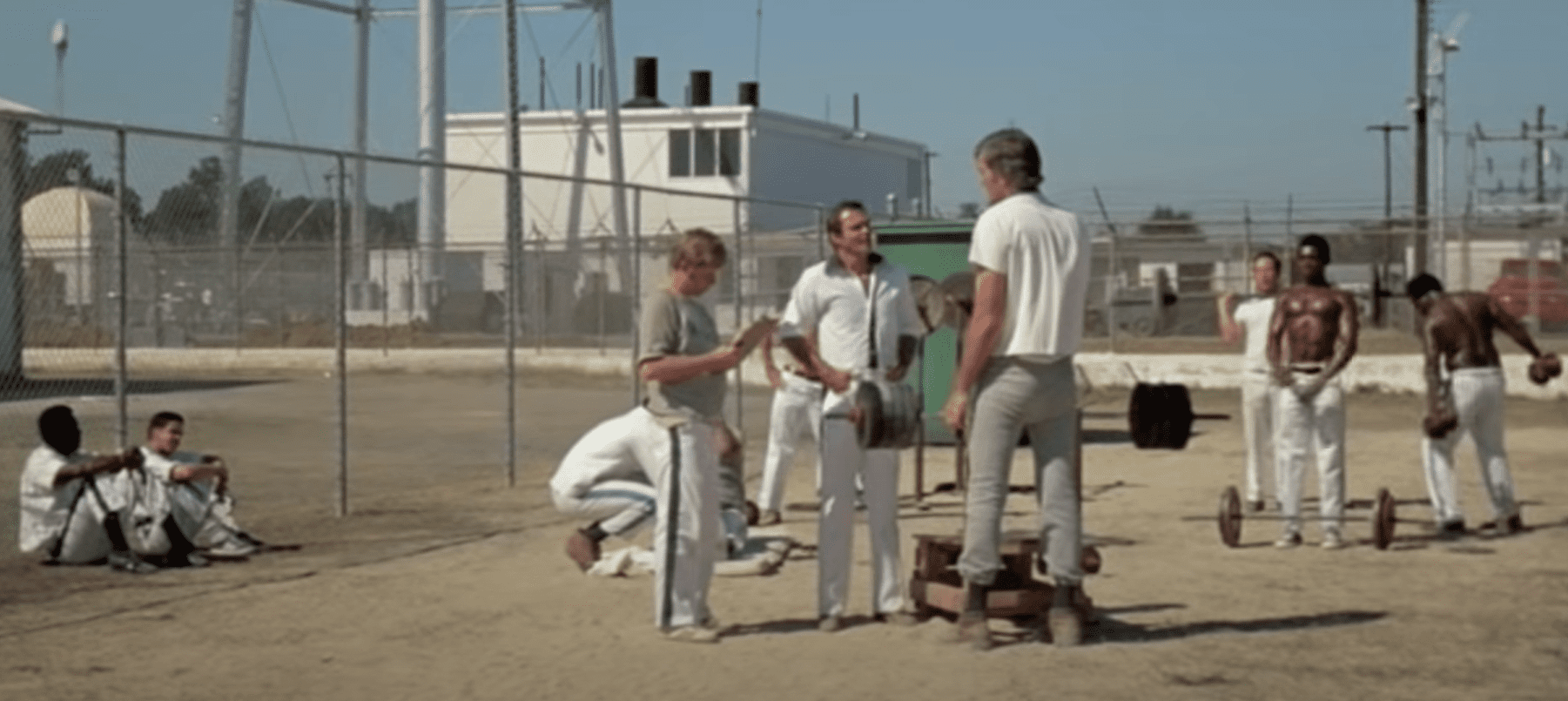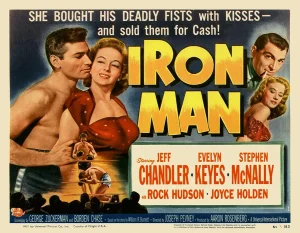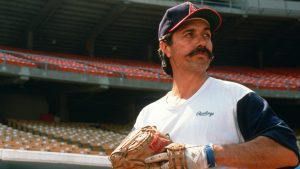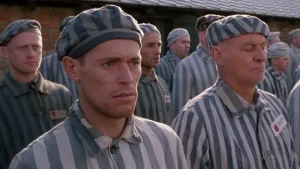
- Who Directed “The Longest Yard” (1974 film)?
- What Is the Plot of “The Longest Yard” (1974 film)?
- Is “The Longest Yard” (1974 film) Based on a True Story?
- Who Stars in “The Longest Yard” (1974 film)?
- What Genre Is “The Longest Yard” (1974 film)?
- When Was “The Longest Yard” (1974 film) Released?
- What Inspired the Creation of “The Longest Yard” (1974 film)?
- Are There any Sequels or Remakes of “The Longest Yard” (1974 film)?
- What Is the Significance of the Title “The Longest Yard”?
- Is “The Longest Yard” (1974 film) Suitable for All Ages?
- What Impact did “The Longest Yard” (1974 film) Have on Popular Culture?
Who Directed “The Longest Yard” (1974 film)?
Robert Aldrich was an American film director, producer, and screenwriter, known for his work in various genres, including action, drama, and thriller. Born on August 9, 1918, Aldrich began his career in the film industry in the 1940s, initially working as an assistant director before making his directorial debut with the film “Big Leaguer” in 1953.
Throughout his career, Aldrich directed a diverse range of films, earning a reputation for his bold and often subversive storytelling style. Some of his notable works include “Kiss Me Deadly” (1955), “What Ever Happened to Baby Jane?” (1962), “The Dirty Dozen” (1967), and “The Flight of the Phoenix” (1965).
“The Longest Yard” (1974) was one of Aldrich’s later directorial efforts and remains one of his most popular and enduring films. The success of the movie solidified Aldrich’s status as a talented filmmaker capable of blending action, comedy, and drama to create compelling and entertaining cinema.
Aldrich’s contributions to the film industry were recognized with several awards and honors throughout his career. He received multiple Academy Award nominations and won the Golden Bear at the Berlin International Film Festival for his film “The Killing of Sister George” (1968). Aldrich continued to work in the industry until his passing on December 5, 1983, leaving behind a legacy of influential and memorable films.
What Is the Plot of “The Longest Yard” (1974 film)?
The plot of “The Longest Yard” (1974 film) revolves around Paul Crewe, a former professional football player who finds himself in prison after a series of personal troubles, including a drunken joyride with his girlfriend. Inside the prison, Crewe is coerced by the sadistic warden to form a football team comprised of inmates to play against the guards’ team.
Initially reluctant, Crewe eventually agrees and begins to train the ragtag group of inmates for the big game. Along the way, he faces opposition from both the guards and some of the prisoners, but he manages to instill teamwork and camaraderie among his teammates.
As the game approaches, tensions rise, and the inmates must overcome various obstacles and personal conflicts to stand a chance against the well-trained guards’ team. The film culminates in an intense and thrilling football game between the inmates and guards, with high stakes for both sides.
Overall, “The Longest Yard” explores themes of redemption, resilience, and the power of teamwork, set against the backdrop of a high-stakes football match within the confines of a prison environment.
Is “The Longest Yard” (1974 film) Based on a True Story?
No, “The Longest Yard” (1974 film) is not based on a true story. The film is a work of fiction, written by Tracy Keenan Wynn and based on a story by Albert S. Ruddy. While the movie incorporates elements of realism, such as its portrayal of prison life and football, the characters, events, and situations depicted in the film are products of the screenwriter’s imagination and creativity.
Who Stars in “The Longest Yard” (1974 film)?
“The Longest Yard” (1974 film) stars Burt Reynolds in the lead role of Paul Crewe, the charismatic former professional football player turned inmate. The film also features Eddie Albert as the sadistic warden, James Hampton as Crewe’s friend and caretaker, and a notable ensemble cast of actors portraying various inmates and guards.
Other key cast members include:
- Michael Conrad as Nate Scarboro
- Bernadette Peters as the love interest, Sally
- Richard Kiel as Samson, a towering inmate
- Ed Lauter as Captain Knauer, one of the guards
- Harry Caesar as Granville, another inmate
- John Steadman as Rassmeusen, a guard
- Charles Tyner as Unger, the head guard
- Mike Henry as Rassmeusen, a guard
These actors brought the colorful characters of “The Longest Yard” to life, contributing to the film’s enduring popularity and cultural impact.
What Genre Is “The Longest Yard” (1974 film)?
“The Longest Yard” (1974 film) is primarily categorized as a sports comedy-drama. It combines elements of sports, comedy, and drama to tell the story of Paul Crewe, a former professional football player who ends up in prison and is coerced into forming a football team of inmates to play against the guards’ team. The film incorporates themes of redemption, camaraderie, and resilience, while also providing plenty of comedic moments and intense sports action. Overall, the film’s blend of genres makes it a unique and entertaining cinematic experience.
When Was “The Longest Yard” (1974 film) Released?
“The Longest Yard” (1974 film) is a sports comedy-drama directed by Robert Aldrich. The screenplay was written by Tracy Keenan Wynn, based on a story by Albert S. Ruddy. The film was produced by Albert S. Ruddy Productions and distributed by Paramount Pictures.
The movie stars Burt Reynolds as the protagonist, Paul Crewe, a former professional football player who ends up in prison after a series of personal troubles. Alongside Reynolds, the film features an ensemble cast including Eddie Albert, Michael Conrad, Bernadette Peters, Richard Kiel, and James Hampton.
“The Longest Yard” received critical acclaim upon its release, particularly for Reynolds’ performance and the film’s engaging storyline. It was a commercial success, grossing over $43 million at the box office. The film’s popularity led to a 2005 remake starring Adam Sandler in the lead role.
In addition to its success at the box office, “The Longest Yard” has become a cult classic and remains a beloved sports film to this day. It is praised for its entertaining blend of comedy, drama, and sports action, as well as its exploration of themes such as redemption, camaraderie, and resilience within the confines of a prison setting.
What Inspired the Creation of “The Longest Yard” (1974 film)?
The availability of “The Longest Yard” (1974 film) for streaming depends on your location and the streaming platforms available in your region. You may find the movie available for streaming on various platforms such as Netflix, Amazon Prime Video, Hulu, HBO Max, Disney+, Google Play Movies & TV, YouTube Movies, Vudu, iTunes, and others.
However, the availability of the film may vary over time as licensing agreements change and new streaming platforms emerge. Therefore, it’s a good idea to check the specific streaming services available to you to see if “The Longest Yard” (1974 film) is currently offered for streaming. Alternatively, you may also consider renting or purchasing the movie digitally through various online platforms.
Are There any Sequels or Remakes of “The Longest Yard” (1974 film)?
Yes, there is a remake of “The Longest Yard” (1974 film) released in 2005. The remake stars Adam Sandler in the lead role of Paul Crewe, and it features a modernized version of the original story. While the basic premise remains the same—Crewe, a former football player, leads a team of inmates in a football game against the guards—the remake includes some updates and changes to the plot and characters.
In addition to Adam Sandler, the cast of the 2005 remake includes Chris Rock, Burt Reynolds (who starred in the original film and portrays a different character in the remake), Nelly, James Cromwell, and William Fichtner, among others. The remake was directed by Peter Segal and produced by Paramount Pictures.
While the 2005 remake received mixed reviews from critics, it was a commercial success, grossing over $190 million worldwide. It remains a popular and well-known film in its own right, offering a contemporary take on the classic story of “The Longest Yard.”
What Is the Significance of the Title “The Longest Yard”?
The title “The Longest Yard” holds significant symbolic and literal meaning within the context of the film:
- Literal Meaning:
- In the film, “The Longest Yard” refers to the football field within the prison where much of the action takes place. It is the location where the inmates, led by Paul Crewe, compete against the prison guards in a high-stakes football game. The title directly alludes to the setting of the climactic showdown between the two teams.
- Symbolic Meaning:
- Beyond its literal reference, the title carries symbolic significance related to the challenges and obstacles faced by the characters. The phrase “the longest yard” suggests a daunting and formidable task or journey, reflecting the uphill battle that Crewe and his team of inmates must endure as they strive for victory against the odds. It symbolizes the lengths to which they are willing to go, both physically and emotionally, to achieve their goals and overcome adversity within the confines of the prison system.
Overall, the title “The Longest Yard” encapsulates both the physical setting of the football game and the metaphorical journey of resilience, determination, and redemption undertaken by the characters in the film.
Is “The Longest Yard” (1974 film) Suitable for All Ages?
“The Longest Yard” (1974 film) is rated R, which means it may not be suitable for all ages. The R rating indicates that the film contains content that may be inappropriate for children under 17 without parental guidance. Some of the reasons for the R rating include:
- Language:
- The film contains strong language, including profanity and explicit dialogue.
- Violence:
- There are scenes of violence throughout the film, particularly during the football game and confrontations between characters.
- Sexual Content:
- “The Longest Yard” includes some sexual content and references, though it is not a predominant aspect of the film.
Due to these factors, parents may want to exercise caution when deciding whether “The Longest Yard” is suitable for younger viewers. It is recommended to review the film’s content and ratings guidelines to determine if it aligns with individual family preferences and values.
What Impact did “The Longest Yard” (1974 film) Have on Popular Culture?
“The Longest Yard” (1974 film) had a significant impact on popular culture, influencing various aspects of entertainment and leaving a lasting legacy. Some of the key impacts include:
- Influence on Sports Films:
- “The Longest Yard” set a precedent for sports films, particularly those focused on football. Its blend of comedy, drama, and intense sports action inspired subsequent films in the genre, many of which drew inspiration from its themes and storytelling techniques.
- Cultural Iconography:
- The film introduced iconic characters and moments that have become ingrained in popular culture. From Paul Crewe’s rebellious attitude to the intense football showdown between the inmates and guards, “The Longest Yard” produced memorable imagery and dialogue that continues to resonate with audiences.
- Remake and Adaptations:
- The success of “The Longest Yard” led to a 2005 remake starring Adam Sandler, as well as adaptations in other countries. These films introduced the story to new generations of viewers and further solidified its place in popular culture.
- Impact on Television:
- The popularity of “The Longest Yard” inspired television shows and specials centered around similar themes of sports, camaraderie, and overcoming adversity. Its influence can be seen in various sports-themed programming and reality shows.
- Cultural Commentary:
- “The Longest Yard” offered social commentary on issues such as justice, authority, and corruption within the prison system. Its exploration of these themes resonated with audiences and sparked discussions about broader societal issues.
Overall, “The Longest Yard” left an indelible mark on popular culture, shaping the landscape of sports films and entertainment while continuing to be celebrated and referenced in various forms of media.






